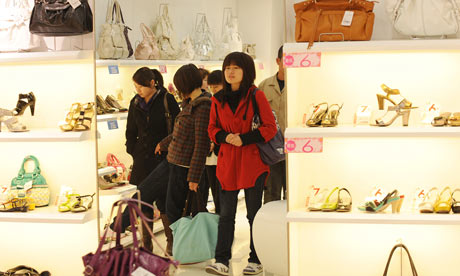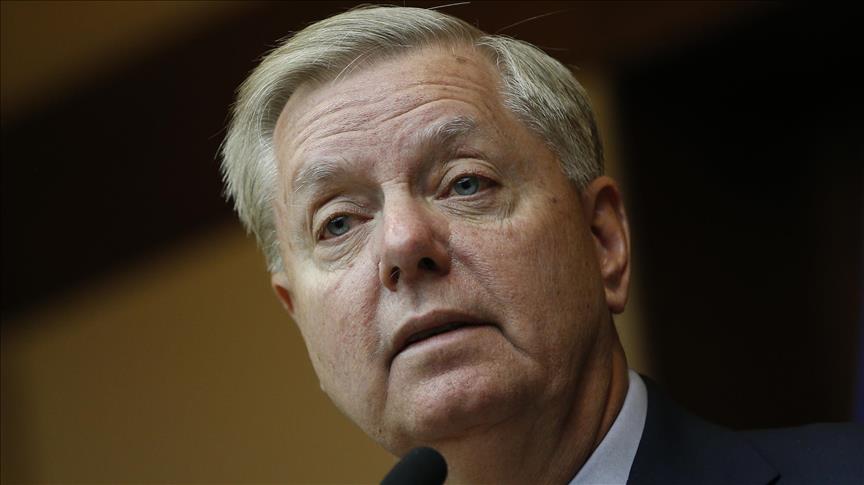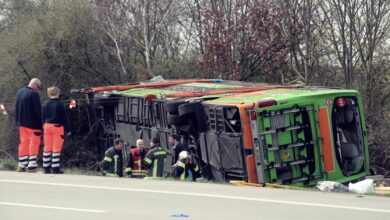
 China has overtaken Japan as the world’s second-largest economy, but the rising power must overcome a number of hurdles if it intends to challenge the United States for the top position.
China has overtaken Japan as the world’s second-largest economy, but the rising power must overcome a number of hurdles if it intends to challenge the United States for the top position.
China’s gross domestic product in real terms grew 10.3 percent in 2010 from a year earlier, the Chinese National Bureau of Statistics announced Thursday. It was the first double-digit year-on-year growth in three years.
The country’s nominal GDP in 2010 reached 39.798 trillion yuan (about $5.881 trillion).
In the first nine months of 2010, Japan and China were tied at $3.9 trillion in terms of nominal GDP, giving Japan a loose claim to the No. 2 position that it has held since 1968, when it surpassed West Germany.
But China’s 9.8-percent year-on-year increase in GDP in the October-December period is certain to exceed the Japanese number, which will be released in mid-February.
The World Bank predicts that China’s economic growth in real terms will slow to 8.7 percent in 2011, still well above the global average of 3.3 percent.
Such predictions have led some economists to forecast that China will become the world’s largest economy in 2020.
But the country is fraught with a host of challenges, including a wealth disparity that could limit personal consumption, soaring inflation and possible unrest from the millions of people who have not seen the benefits from the country’s economic rise.
A 23.8-percent jump in spending on public works and other projects, which began after the global financial crisis, and an emphasis on exports fueled China’s expansion in 2010.
The value of China’s exports topped all countries for the second straight year. In 2010, Chinese exports soared 31 percent, a huge turnaround from a 16-percent decrease in 2009.
But China is aware that the current pace of its export expansion is unsustainable.
Robust exports, buoyed by rampant development and a competitive edge attained by cheap labor costs, have created new problems, such as pollution, overuse of natural resources and trade frictions.
In addition, industrialized countries are demanding that China stop keeping its currency artificially low to retain its advantage in exports.
China plans to switch to economic growth led by domestic consumption, but the uneven distribution of wealth has become embedded in society and could limit household spending.
Although personal consumption soared by 18.4 percent, the high figure has much to do with steep price increases.
And the percentage of household income has actually declined over the past two decades even as the Chinese economy was expanding at an annual rate of about 10 percent.
The ones that have benefitted the most from the country’s rapid economic ascent are the government and state-run enterprises, which have power and access to information.
Farmers had seen a smaller rise in their income than that for urban residents, leading to a disparity that could spark social unrest and hinder personal consumption.
In 2010, the increase in farming household income exceeded that for city dwellers for the first time in almost 10 years. But in terms of value, farmers’ income was only one-third of that for urban residents.
China’s per-capita GDP is about one-10th of the Japanese figure and still has not cracked the global top 100.
With this in mind, Beijing is instructing local governments to raise minimum wages to bring the pace of economic growth and household income to the same level under a five-year plan from 2011.
But China will also have to deal with soaring inflation to achieve this goal.
China’s market is awash with funds from huge government investments and speculative funds flowing in from advanced countries.
The consumer price index rose 3.3 percent in 2010 from a year earlier, above the government target of 3 percent.
China’s “golden period” is expected to run until around 2015, when the production-age population peaks. The country’s population, now at 1.3 billion, is forecast to decline after 2030.
While tackling inflation, the Chinese government also needs to address the midterm issue of improving social security and upgrading industrial and social structures to grow into a mature economy.
The fourfold expansion of China’s economy over the past decade has also caused friction with other countries.
China’s military buildup, its passive response to tackling global warming and its de facto bans on exports of rare earth elements have infuriated countries around the world.
Its spending spree on fuel and grain has also led to troubles with emerging economies.
[adrotate group=”7″]



